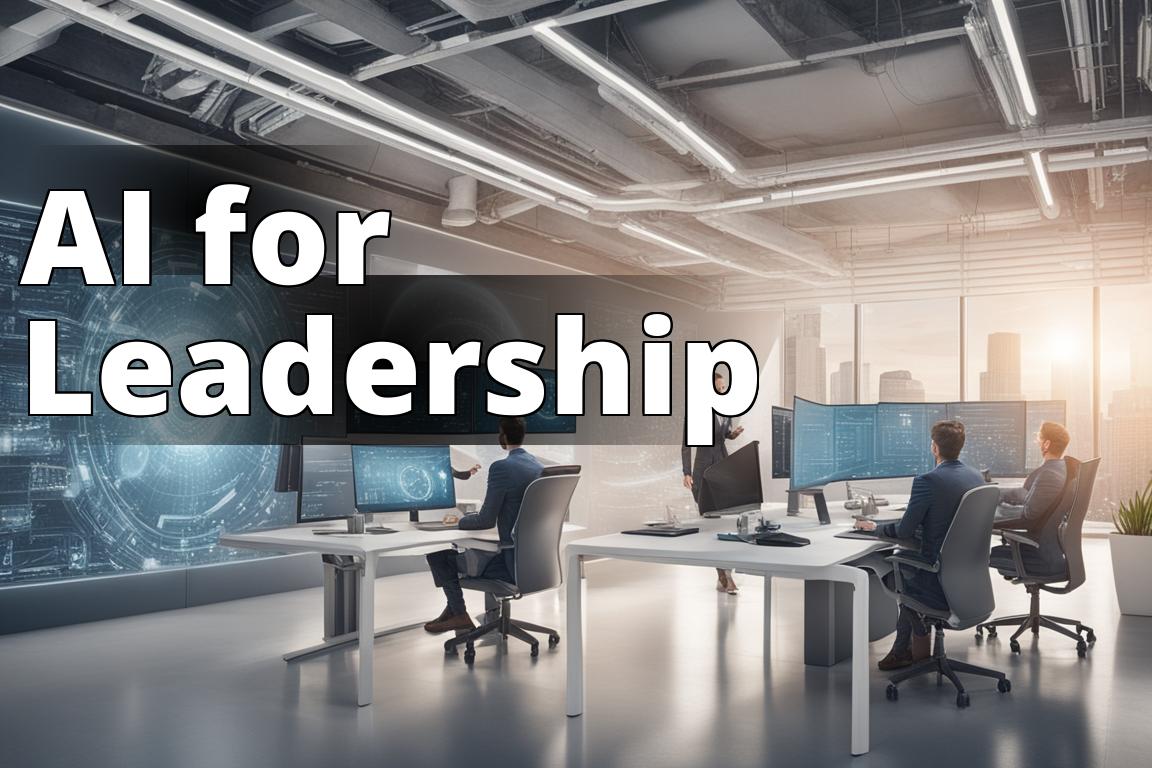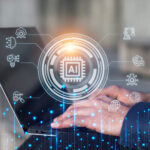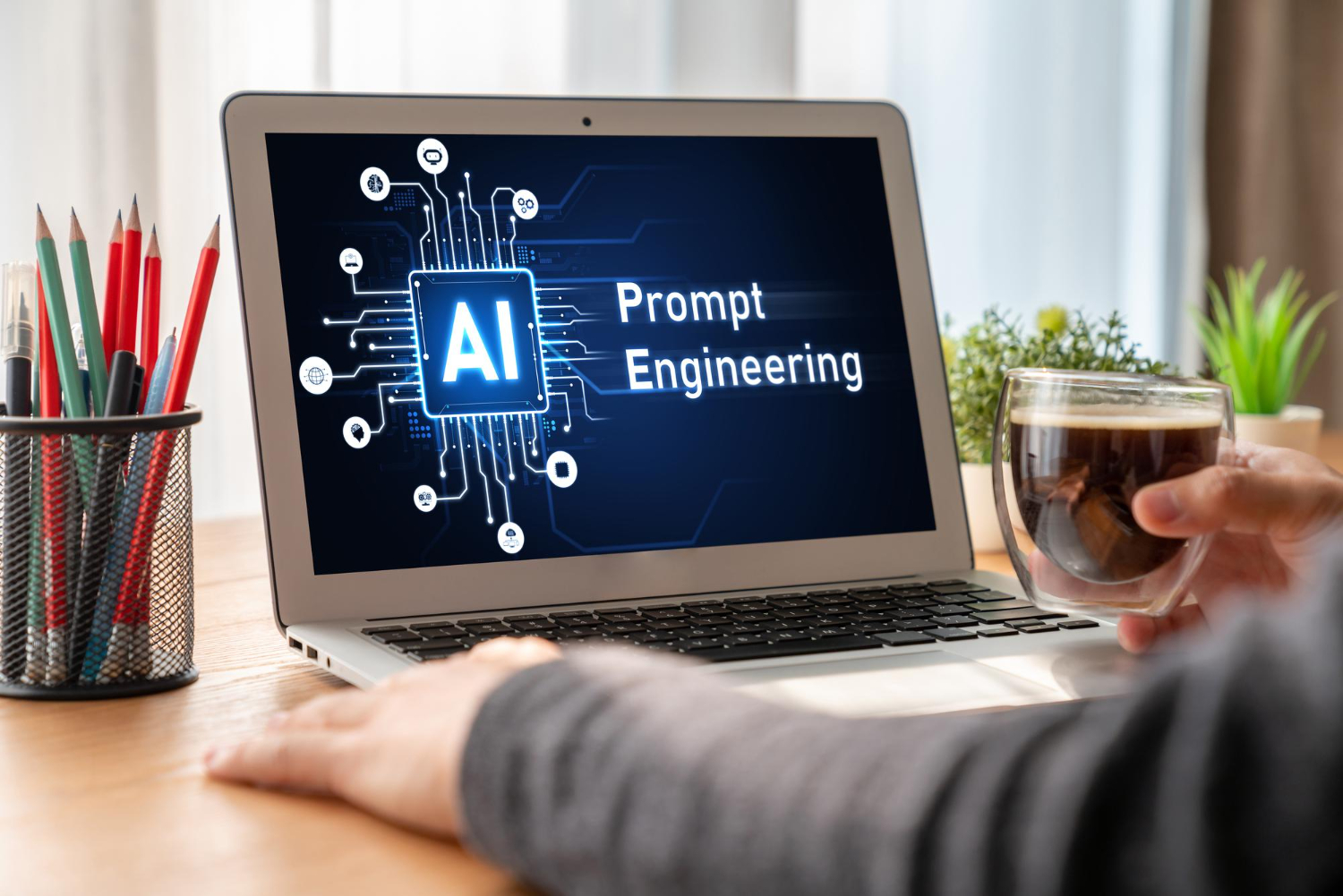Generative AI for Leaders
By reading this article, you will learn:
- AI’s impact on the workplace, including automation, decision-making, and new job creation
- How to prepare for the future of work with AI by understanding its industry, job, and career implications
- How AI can be used to improve work, careers, organizations, and society
What is AI in the workplace?
At its core, AI in the workplace signifies leveraging intelligent algorithms to enhance work processes, decision-making, and overall productivity. It’s about harnessing AI’s capabilities to automate routine tasks, provide insightful data analytics, and foster new job roles centered around AI management and implementation. But, it’s the undercurrents of this AI revolution—how it’s reshaping the very fabric of how we work, interact, and think about work—that demand our attention and adaptation.
Also go through the details mentioned in mckinsey report
How AI is changing the workplace
AI is automating repetitive tasks
Automation, driven by AI, is liberating humans from the drudgery of repetitive tasks. I’ve witnessed, in my own professional journey, how AI tools have streamlined operations in sectors ranging from manufacturing to customer service, significantly boosting efficiency.
AI is improving decision-making
AI’s capability to sift through mountains of data and unearth actionable insights is unparalleled. In sectors like finance and healthcare, this has translated into more informed decisions made at a fraction of the time traditionally required.
Few Real world examples
1. Retail Giant Optimizes Inventory Management:
- Company: Walmart
- Challenge: Accurately predict demand for thousands of products across hundreds of stores to avoid stockouts and overstocking.
- Solution: Implemented AI-powered demand forecasting models that analyze historical sales data, weather patterns, social media trends, and competitor pricing.
- Result: Reduced out-of-stock occurrences by 33% and saved $500 million annually in inventory costs.
2. Airline Streamlines Maintenance Procedures:
- Company: Lufthansa
- Challenge: Schedule aircraft maintenance efficiently to minimize downtime and maximize operational efficiency.
- Solution: Developed AI algorithms that analyze sensor data from aircrafts to predict potential failures and recommend proactive maintenance actions.
- Result: Reduced unscheduled maintenance events by 20% and increased aircraft availability by 5%.
3. Medical Diagnosis with Improved Accuracy:
- Company: Massachusetts General Hospital
- Challenge: Early and accurate diagnosis of complex diseases like cancer.
- Solution: Trained AI models on vast datasets of medical images and patient data to assist doctors in diagnosis and treatment planning.
- Result: Improved diagnostic accuracy by 10% for certain cancers, potentially saving lives and improving patient outcomes.
4. Personalization Drives Customer Engagement:
- Company: Netflix
- Challenge: Recommend content that resonates with individual user preferences for higher engagement and retention.
- Solution: Implemented AI-powered recommendation engines that analyze user viewing history, ratings, and other data to suggest personalized content.
- Result: Increased user engagement by 20% and subscriber retention by 15%.
5. Fraud Detection in Real-Time:
- Company: American Express
- Challenge: Detect fraudulent transactions among millions of daily transactions before they cause financial losses.
- Solution: Developed AI-based fraud detection systems that analyze transaction patterns and identify anomalies in real-time.
- Result: Prevented $7 billion in fraudulent transactions annually, protecting customer accounts and reducing financial losses.
AI is creating new jobs
Contrary to the dystopian narrative of AI as a job killer, my experience has shown it to be a job creator. Roles like AI trainers, ethicists, and maintenance experts are emerging, underscoring the necessity for a workforce skilled in AI-related domains.
Real World examples with company names
1. AI Trainers and Operators:
- Company: Google, Amazon, Microsoft, IBM
- Description: Train and maintain complex AI systems, ensuring proper function and ethical compliance.
2. Data Scientists and Analysts:
- Company: Facebook, Netflix, Spotify, Uber
- Description: Analyze vast datasets generated by AI, extracting insights and informing decision-making.
3. Cybersecurity Specialists:
- Company: Palo Alto Networks, Crowdstrike, McAfee, Fortinet
- Description: Protect AI systems from cyberattacks and ensure data security.
4. Explainable AI Developers:
- Company: DARPA, Intel, Bosch, Salesforce
- Description: Develop AI systems that are transparent and understandable, fostering trust and ethical use.
5. AI Ethicists:
- Company: Microsoft, Google, Facebook, IBM
- Description: Identify and mitigate potential risks associated with AI, such as bias and discrimination.
6. AI User Experience Designers:
- Company: Apple, Samsung, Tesla, Waymo
- Description: Design intuitive and user-friendly interfaces for AI-powered products and services.
7. AI Content Creators:
- Company: OpenAI, Jasper.ai, RunwayML, Replika
- Description: Partner with businesses and individuals to create unique and engaging content using AI.
8. AI-powered Customer Service Representatives:
- Company: Amazon, Bank of America, Hilton, Sephora
- Description: Develop, train, and manage AI-powered chatbots and virtual assistants for customer service.
9. AI Researchers and Developers:
- Company: DeepMind, OpenAI, Google AI, Facebook AI
- Description: Push the boundaries of AI through research and development of new algorithms and applications.
10. AI in Education:
- Company: Duolingo, Knewton, iRobot, Coursera
- Description: Develop and implement AI-powered tools for personalized learning, feedback, and administrative tasks.
AI is changing the skills employees need
The AI era demands a recalibration of skills. While computational and routine tasks wane in significance, creative, empathetic, and complex problem-solving abilities are becoming paramount.
Here you can see how software testing can be replaced with aritificial intelligence
Real Personal Experiences of Industry leaders with AI in the Workplace
Satya Nadella mentioned in a 2019 interview with Harvard Business Review shared his personal experience with AI at Microsoft. He described being “blown away” by the power of AI when he used an early version of Microsoft’s image recognition tool to identify his dog in a photo library. This personal experience, he said, fueled his passion for making AI accessible and beneficial to everyone, not just tech experts.
Company-Wide Impact: Under Nadella’s leadership, Microsoft has become a leader in democratizing AI by:
- Developing Azure AI platform: This cloud-based platform offers pre-built AI tools and services, making them accessible to businesses of all sizes without extensive technical expertise.
- Fostering a culture of AI adoption: Microsoft encourages its employees to experiment with AI and integrate it into their work, regardless of their department or role.
- Promoting responsible AI development: Microsoft actively participates in discussions and initiatives around ethical AI development and deployment.
Quote: “AI is not just about technology; it’s about the human impact. How can we use AI to empower people, organizations, and society as a whole?” – Satya Nadella
This example highlights how a CXO’s personal experience with AI can translate into a strategic vision for their company, ultimately shaping its impact on the wider business landscape.
Additional Examples:
- Ginni Rometty, former CEO of IBM: Championed the development of IBM Watson, an AI platform for cognitive computing, and its applications in various industries.
- Marc Benioff, CEO of Salesforce: Emphasizes the use of AI in customer relationship management (CRM) to personalize customer experiences and drive business growth.
- Sundar Pichai, CEO of Alphabet/Google: Focuses on AI research and development, including DeepMind, and its potential to solve real-world problems and improve people’s lives.
This personal experiences highlights the importance of understanding and leveraging AI to thrive in the evolving landscape of the workplace.
AI is changing how we work
AI is not just altering what we work on but how we work. It’s fostering environments where collaboration between humans and machines is the norm, leading to safer and more efficient workplaces.
AI is changing how we interact with technology
Gone are the days of clunky interfaces and rigid software. AI is making technology more intuitive, responsive, and personalized, reshaping our interaction paradigms.
AI is changing how we interact with each other
AI tools, from real-time language translation to emotion recognition, are breaking down communication barriers and fostering a more inclusive and connected global workforce.
AI is changing how we think about work
AI compels us to redefine work. It encourages a shift from task-oriented to outcome-oriented approaches, where the value lies in innovation and strategic thinking rather than mere execution.
How to prepare for the future of work with AI
Understand how AI will change your industry
It’s imperative to grasp the specific implications of AI for your sector. Whether through upskilling, strategic planning, or operational adjustments, being proactive is key.
Insider Tip: Stay abreast of industry trends and AI advancements to anticipate changes.
Understand how AI will change your job
Reflect on how AI could automate or augment aspects of your role. Embrace lifelong learning and be open to evolving your skill set to stay relevant.
Understand how you can use AI to improve your work
Explore AI tools that can enhance your productivity and creativity. Personal experimentation has taught me that leveraging AI for mundane tasks frees up time for more meaningful work.
Understand how you can use AI to improve your career
AI opens new career pathways. Consider roles that blend your domain expertise with AI, positioning yourself at the intersection of technology and your field.
Understand how you can use AI to improve your organization
AI can be a catalyst for organizational transformation. Advocate for AI adoption in processes where it can drive significant value and competitive advantage.
Understand how you can use AI to improve society
AI’s potential to address societal challenges is immense. From healthcare to environmental sustainability, consider how your work with AI can contribute to the greater good.
Conclusion
AI in the workplace is not a fleeting trend; it’s the blueprint for the future of work. As we navigate this transformation, our readiness will hinge on our ability to adapt, learn, and innovate. By understanding AI’s implications for our industries, jobs, and society at large, we can not only prepare but thrive in this new era. The journey ahead is as exciting as it is uncertain, and it beckons us with a clear message: the future of work is not something we enter; it’s something we create.
Q & A
Who can benefit from generative AI for leaders?
Leaders in various industries can benefit from using generative AI to generate insights and ideas.
What is generative AI for leaders?
Generative AI uses algorithms to create new and unique content, such as reports, ideas, and strategies for leaders.
How can generative AI improve leadership decision-making?
Generative AI can analyze vast amounts of data to provide leaders with valuable insights and innovative solutions.
But isn’t generative AI for leaders too complex to implement?
Generative AI tools are becoming more user-friendly, making it easier for leaders to integrate them into their decision-making processes.
Who develops generative AI for leaders?
Tech companies and AI experts develop generative AI tools specifically tailored for leaders and decision-makers.
How can generative AI enhance leadership creativity?
Generative AI can stimulate creativity by generating diverse perspectives and ideas that can inspire leaders to think outside the box.







